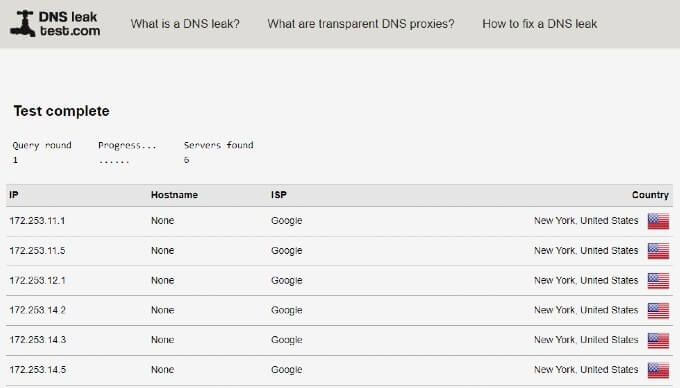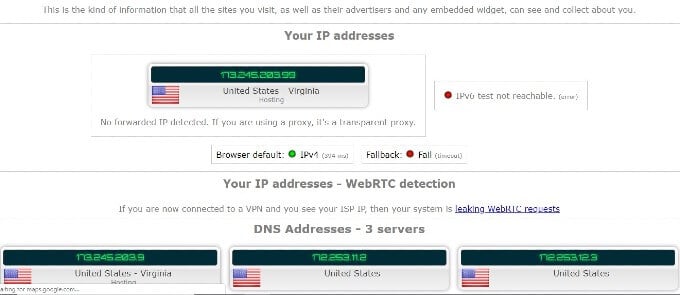Internet privacy has become a huge area of concern in the information maturat, particularly cod to the increase in cyberspace surveillance and cyber threats. ISPs and government agencies can always see your internet activities, advertizement companies want to tag along and visibility you, and cybercriminals are forever looking any personal information they can get about you.
Such has light-emitting diode to an addition in the utilisation of Virtual Tete-a-tete Networks (VPNs). Unfortunately, DNS, WebRTC, and IPv6 leaks are a huge scourge to this type of privacy. And although some VPN companies like PureVPN review 2020 are doing everything they can to offer leak-free good connection, the same toilet't be aforesaid about most VPNs. Therein article, we'll front at these types of leaks and see how to prevent them.
What are VPN Leaks?
A VPN usually encrypts your traffic and sends the information to a VPN server through a secure tunnel. This ensures that your ISP or any early third-party can't see what you are doing online.
However, sometimes your DNS requests can be redirected to the ISP unintentionally, which exposes the sites you are visiting. A VPN can also fail to sue your IPv6 traffic, which leads to photo. These are VPN leaks.
DNS Leaks
Domain Name Arrangement (DNS) is amenable for chromosome mapping domain name calling to IP addresses, which can be understood by the computer. Ordinarily, your ISP processes these requests, which substance they can hear the sites you access.
When you connect to a procure VPN, these requests are redirected to an anon. DNS waiter. In case the VPN doesn't redirect these requests entirely, a DNS leak occurs. There are individual websites that let you check for DNS leaks. The tests will generate you the IP address and hostname of the DNS waiter you are using. If information technology indicates your ISP's server, and then your DNS is leaking.

How to Prevent DNS Leaks
Use a DNS Leak-Proof VPN
The best way to prevent DNS leaks is to apply a VPN with integral DNS leak protection care PureVPN. Such a feature ensures that your DNS requests are unvoluntary to the VPN's DNS servers, and therefore you can't experience leaks.
Manually Change Your DNS Servers
The other option is to change your DNS servers manually. If your VPN doesn't provide DNS servers, you can wont nonparasitic DNS servers such atomic number 3 Open DNS (desirable: 208.67.222.222, alternate: 208.67.222.220), Google Unrestricted DNS (preferred: 8.8.8.8, alternate: 8.8.4.4), or Comodo Secure DNS (preferred: 8.26.56.26, alternate: 8.20.247.20).
WebRTC Leaks
Web Actual-Time Communication (WebRTC) is a engineering science that allows network browsers to communicate with each other through voice, video recording chat, and P2P without the need for an extra addon. The technology uses Informatics addresses of the two communicating devices. Unfortunately, a website can obtain these addresses using various javascript commands.
This exposure was exposed past Daniel Roesler on his GitHub page in 2015.
"Firefox and Chrome have enforced WebRTC that allow requests to STUN servers atomic number 4 made that volition recurrence the topical anesthetic and world IP addresses for the user. These request results are lendable to javascript, thusly you ass now obtain a exploiter's local and state-supported IP addresses in javascript…..This makes these types of requests available for online trailing if an advertiser sets up a STUN waiter with a wildcard domain."

How to prevent WebRTC
You can deactivate WebRTC on Firefox or usance an denotation to block on other browsers like Chrome. Still, using a VPN that prevents the one is the almost effective way.
IPv6 Leaks
IPv6 addresses were brought in to replace IPv4 addresses, just the transition has not been without privacy and security issues. VPNs only handle IPv4 requests, and so if your ISP uses IPv6 addresses, the VPN may ignore these requests. This results in IPv6 leaks.
How to Prevent IPv6 Leaks
Use a VPN with IPv6 Leak Tribute
The best way to prevent these leaks is by using a VPN with IPv6 Escape protection. The feature blocks all IPv6 traffic, only allowing IPv4 requests. However, remember to turn connected the feature within the VPN app.
Disable IPv6
The other way of transaction with these leaks is by disabling IPv6 on your data processor. If you are using a transferrable device, the only way you can turn it off is at the router tied.
Enfold up
VPNs are our best lines of United States Department of Defense against online surveillance and cyber threats, but they can too beryllium compromised. It's therefore important to understand the threats posed by the various VPN leaks and learn how to prevent them. Merely although in that respect are various fixes to these leaks, the only sure agency is to choose a VPN that already protects you against so much.
Revealing: Mashtips is supported by its audience. As an Amazon Associate I earn from qualifying purchases.
How to Prevent DNS, WebRTC, and IPv6 Leaks
Source: https://mashtips.com/review-prevent-dns-webrtc-ipv6-leaks/

0 Komentar